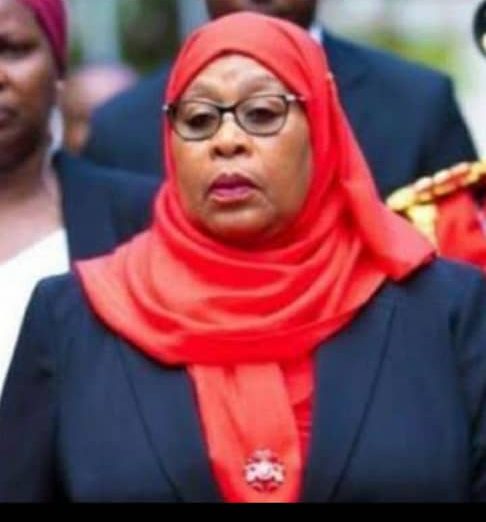AS Tanzania approaches its pivotal October 2025 general election, the country finds itself retreating from a rare but significant moment of political détente. That moment was shaped by the now-collapsed maridhiano (reconciliation) process between the ruling party CCM and the main opposition party CHADEMA.
Police arrests, brutalisation, and serious criminal charges against opposition leaders and activists are becoming the order of the day again.
As I write this article, Tundu Lissu, the leader of the main opposition party is facing treason charges. Some of his party members have been severally arrested, beaten up, sodomised, and left bleeding.
Rev. Fr. Charles Kitima, the secretary general of Tanzania Episcopal Conference (TEC) is in hospital, following a brutal assault by thugs believed to be state actors two days ago.
Last night, another horrible episode ensued as unknown people, believed to be police, broke into the house of Mdude Nyagali, a militant opposition activist, and attacked him.

Eyewitnesses say unidentified men, believed to be state agents, violently broke into his residence, beat him mercilessly, and dragged him away – leaving trails of blood in their wake.
His whereabouts remain unknown, sparking an outcry from human rights activists and CHADEMA supporters demanding his immediate and unconditional release.
This is not Mdude’s first brush with state violence. Since 2017, he has been repeatedly targeted:
– 2018 – Arbitrary arrest for online criticism of the government.
– May 2019 – Kidnapped, tortured, and dumped in critical condition.
– July 2023 – Arrested with lawyer Boniface Mwabukusi over protests against the DP World port deal.
– November 2024 – Detained during local government campaigns in Songwe.
– May 2025 – Once again abducted and assaulted under murky circumstances.
His continued militancy has aligned him closely with CHADEMA’s hardline faction led by Tundu Lissu, a staunch critic of both the government and internal opposition efforts toward dialogue.
Yet it was the now-defunct maridhiano process that, for a brief moment, had changed the political landscape.
Initiated in 2022 by President Samia Suluhu Hassan and CHADEMA chairman Freeman Mbowe, maridhiano helped ease political tensions that had gripped Tanzania under the late President John Magufuli’s iron-fisted rule. The return of political rallies – banned since 2016 – revived the opposition movement.

The restoration of state subvention to CHADEMA gave the party a critical lifeline, enabling reorganization and leadership renewal. Hundreds of political detainees were released, many of whom had faced false charges, including murder.
Much of this progress was credited to Freeman Mbowe’s calm, diplomatic leadership. His political statesmanship earned him admiration, but also suspicion and resistance from rivals within his own party.
As Mbowe gained political capital and positioned CHADEMA as a credible democratic force, factions within both CCM and CHADEMA perceived maridhiano as a power consolidation strategy.
To them, the process elevated Mbowe at the expense of other players – particularly those like Tundu Lissu, who preferred a confrontational approach.
The unravelling of maridhiano came with the DP World scandal, which stirred national outrage, consolidated the opposition against the president, and ruined her remaining trust in the maridhiano process.
Critics of the reconciliation process, both within and outside CHADEMA, saw it as politically naive. As it failed and tensions resurfaced, the state resumed its old habits of repression. The 2024 local elections were marred by serious irregularities and arrests, prompting CHADEMA to adopt the defiant slogan, “No Reforms, No Election.”
To some observers, the current opposition persecution is viewed as a direct consequence of maridhiano’s failure.
Opposition militancy has made people like Mdude a prime target of a government reverting to pre-dialogue tactics.
Meanwhile, Lissu faces treason charges and other outspoken figures like Fr. Charles Kitima – Secretary General of the Tanzania Episcopal Conference – have been attacked.

Fr. Kitima’s recent hospitalization after a brutal assault drew significant international attention. Some observers believe Mdude’s abduction was an intentional diversion meant to deflect from the scandalous attack on Fr. Kitima – a miscalculation that has only deepened public outrage.
If the regime believed that crushing militant voices would quell dissent, it may be sorely mistaken. The more activists like Mdude are targeted, the more their causes gain legitimacy among a frustrated electorate. His possible survival could see him emerge as an even stronger resistance figure.
Alternatively, if the worst is confirmed, his martyrdom may further energize the radical wing of the opposition.
The broader implication is sobering: the collapse of maridhiano has re-opened the wounds it briefly healed. Political prisoners are returning to jail. State violence is escalating.
Tanzania is drifting back to an era where force overrides dialogue and fear suppresses freedom. What was once a promising moment for democratic restoration has become another missed opportunity – one that threatens to define the nation’s political future for years to come.










